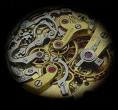
David Hume’s second criticism of Paley’s design argument for the existence of God was that it constitutes a failed inductive generalization. For example, if I reason that, because I have interviewed one college student and found that they like Coke better than Pepsi, I cannot conclude that all, or even most, students like Coke better than Pepsi. In fact from my knowledge that there is one college student that likes Coke better than Pepsi I cannot inductively conclude anything. I can, of course, conclude that there is one student who likes Coke better than Pepsi, but this follows deductively and, as a tautology, is trivial.
Because William Dembski, following Elliott Sober, concludes that Paley’s argument is not to be construed as an inductive argument/inductive generalization, Hume’s second criticism also fails to refute Paley.
Hume’s second criticism goes as follows. If we are to reason that the organisms in our world are the product of intelligent design then we need to have looked at lost of other worlds and observed intelligent designers producing organisms there. (See Demsbki, Intelligent Design, 275) But we have not even observed one other world. So “the inductive argument is as weak as it possibly could be; its sample size is zero.” (Sober, in Ib.) Using our analogy above, this would be like interviewing zero students and concluding that most students like Coke better than Pepsi. And that would be absurd.
In response to Hume Sober writes: “Once again, it is important to see that an inference to the best explanation need not obey the rules that Hume stipulates.” (Ib.) Why not? Sober gives the example of concluding that a large meteorite brought about a mass extinction at the end of the Cretaceous period. But we have never witnessed meteorite strikes causing mass extinctions? True. But this face is “irrelevant,” says Sober. “Inference to the best explanation is different from an inductive sampling argument.” (Sober, in Ib., 275-276)
Dembski agrees that the design argument is best construed as “inference to the best explanation.” (Ib., 276) Dembski goes on to say that “design is not merely an argument but also a scientific theory. Specified complexity in particular provides an information-theoretic apparatus for understanding the designed features of the physical world.” (Ib.)
Well, we know how this argument is going. Personally, I am still very much interested in it.
Because William Dembski, following Elliott Sober, concludes that Paley’s argument is not to be construed as an inductive argument/inductive generalization, Hume’s second criticism also fails to refute Paley.
Hume’s second criticism goes as follows. If we are to reason that the organisms in our world are the product of intelligent design then we need to have looked at lost of other worlds and observed intelligent designers producing organisms there. (See Demsbki, Intelligent Design, 275) But we have not even observed one other world. So “the inductive argument is as weak as it possibly could be; its sample size is zero.” (Sober, in Ib.) Using our analogy above, this would be like interviewing zero students and concluding that most students like Coke better than Pepsi. And that would be absurd.
In response to Hume Sober writes: “Once again, it is important to see that an inference to the best explanation need not obey the rules that Hume stipulates.” (Ib.) Why not? Sober gives the example of concluding that a large meteorite brought about a mass extinction at the end of the Cretaceous period. But we have never witnessed meteorite strikes causing mass extinctions? True. But this face is “irrelevant,” says Sober. “Inference to the best explanation is different from an inductive sampling argument.” (Sober, in Ib., 275-276)
Dembski agrees that the design argument is best construed as “inference to the best explanation.” (Ib., 276) Dembski goes on to say that “design is not merely an argument but also a scientific theory. Specified complexity in particular provides an information-theoretic apparatus for understanding the designed features of the physical world.” (Ib.)
Well, we know how this argument is going. Personally, I am still very much interested in it.